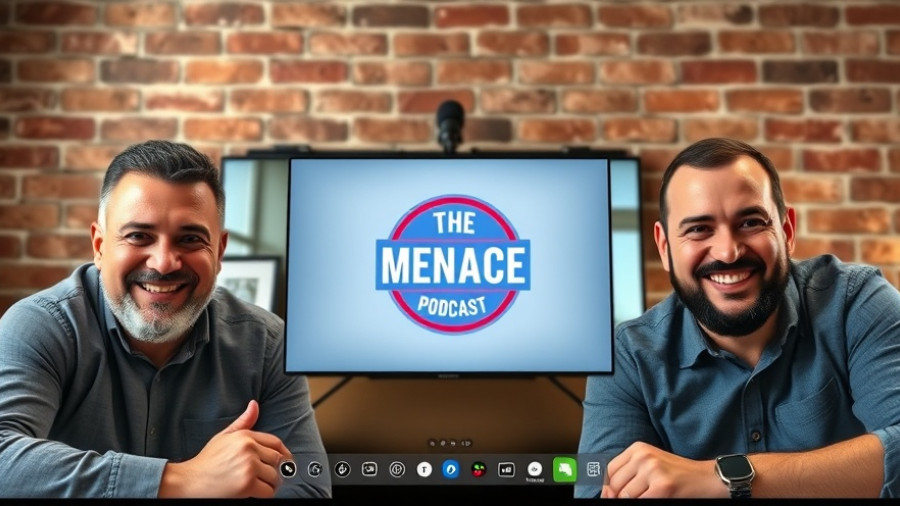
Understanding the Impact of Deadwood on Modern Storytelling
In today's world, storytelling has evolved significantly, with shows like Deadwood showcasing the depth and complexity of human morality. This HBO classic stands out not just for its engaging plot but for its intricate characters who navigate a world devoid of clear moral boundaries. The characters in Deadwood aren't easily categorized as simply good or bad; rather, they exhibit a spectrum of moral choices that reflect the chaotic nature of life itself.
In 'Starting Strength: Light Day | Deadwood | Starting Strength Network Previews', the hosts discuss the artistic brilliance behind Deadwood, prompting us to delve deeper into its moral themes and their relevance in today’s storytelling landscape.
The Creative Genius Behind Deadwood
David Milch, the mastermind behind the series, revolutionized television writing with his rich, layered dialogues and profound character development. The casting of actors such as Ian McShane and Timothy Olyphant brought authenticity to their roles, with Olyphant's portrayal of Seth Bullock standing out as a man striving for righteousness in a lawless environment. Scenes featuring McShane as the ruthless Al Swearengen showcased a masterclass in villainy, blurring the lines between heroism and treachery.
A Closer Look at Morality in Deadwood
The narrative of Deadwood poses compelling questions about morality. As the characters engage in various conflicts and alliances, the viewers are drawn into a complex web of relationships that challenge traditional notions of right and wrong. The series illustrates how morality is context-dependent, often changing in response to societal needs. An unforgettable episode demonstrated this juxtaposition of good and evil as characters come together to obtain medicine for an outbreak, illustrating the profound capacity for cooperation amid chaos.
Why Deadwood Remains Relevant Today
Despite airing over a decade ago, Deadwood's themes resonate with contemporary issues, including the examination of ethical complexities in leadership and community dynamics. In a world where individuals often face difficult choices that pit their morals against survival, the show serves as a stark reminder that humanity's struggle with ethics remains an ongoing story. As viewers navigate their lives, they are left to ponder what their moral choices reveal about society as a whole.
The Influence of Deadwood on Modern Television
Many modern television series have taken cues from Deadwood, learning that a strong narrative combined with complex characters can lead to a more engaging viewing experience. Shows like Breaking Bad and The Sopranos continue the legacy of morally ambiguous characters, reflecting the truth that life rarely presents clear choices. Such series have cultivated a growing audience that appreciates nuanced storytelling, showcasing how Deadwood laid the groundwork for a new era of television.
Final Thoughts on The Legacy of Deadwood
As we reflect on Deadwood and its impact, the timeless nature of its storytelling draws us to recognize the importance of character depth in narrative development. The emotional connections formed with these characters prompt deeper conversations about morality and human interaction. By engaging with Deadwood, we invite ourselves to explore the intricacies of human nature and the stories we tell.
 Add Row
Add Row  Add
Add 




Write A Comment